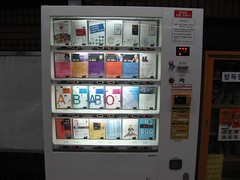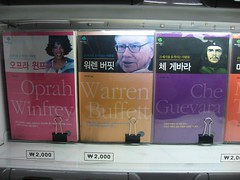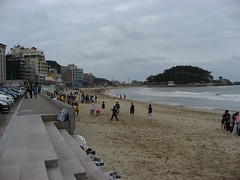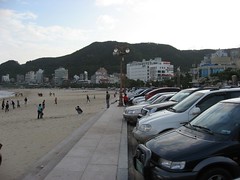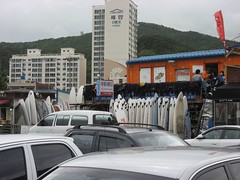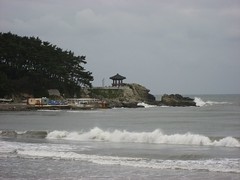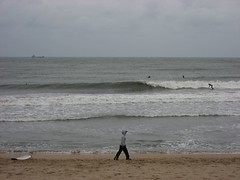So what are the chances of finding the thoughts of Marxist revolutionary Che Guevara in a subway station book vending machine between legendary investment guru Warren Buffett and Mother Teresa? If you thought "not high" then think again:
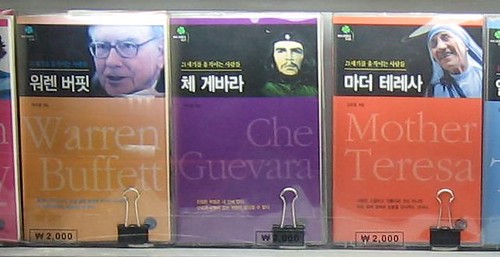
But don't take this to mean that Glasnost has broken out in South Korea, because when I left two months ago my Internet connection was still being censored.
So how does Che end up in a South Korean subway station? Perhaps it's an oversight, or perhaps the material does not fall under the definition of 'books about communism' which need to be banned by the democratic Korean government, or perhaps they just think it's a story with a happy ending. Alternatively, it may be a manifestation of geography.
Many Westerners have been surprised to learn of the existence of the Hitler bars that once appeared in this part of the world, but Nazism happened a long way from Korea and arguably it was really someone else's problem. Recently in my own country, there was a case of an elected public figure who was wrongly alleged to have participated in a Nazi-themed orgy. Before the judgement was handed down there was considerable public revulsion and a confidence vote was held within his organisation in which, it was suggested, European members voted against him and Asian and African members voted in favour. Certainly, anecdotally I'm aware that Korean people didn't necessarily see the matter as being of any great significance. However, when I hypothetically asked how they would react if a public figure in their country was accused of dressing up as a Japanese soldier and performing acts with 'comfort women' an entirely different attitude emerged.
I should add though, that if there is a historical and geographical gulf of understanding between myself as a Westerner and Korean people, it's not simply an inevitable division along racial lines; my family was selling a piano some years ago and the elderly gentlemen who eventually bought it for their club initially phoned and opened up their conversation with the question "It's not Japanese is it?" They'd been in Singapore during the war.
Personally, while Che Guevara didn't make the wall of my student flat back at University, unlike those of quite a few of the people I knew, I'd still like to think my book-vending machine discovery is a positive sign of progress in Korea.
